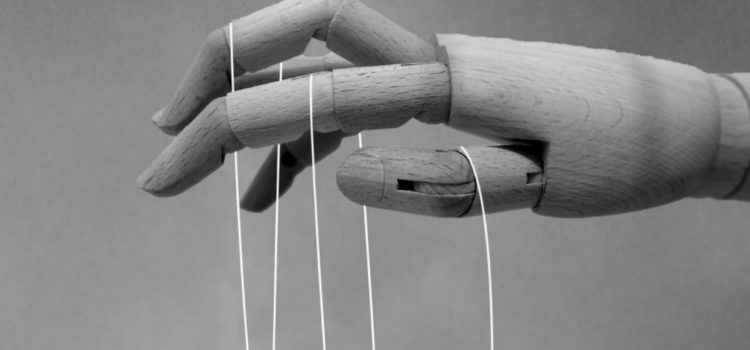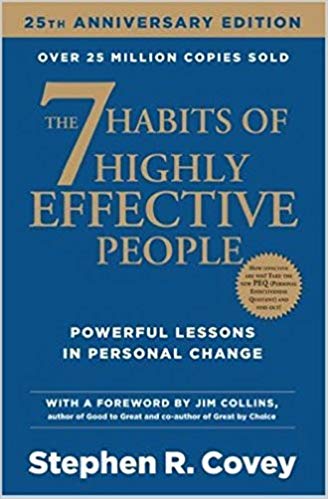

This article is an excerpt from the Shortform summary of "The 7 Habits of Highly Effective People" by Stephen Covey. Shortform has the world's best summaries of books you should be reading.
Like this article? Sign up for a free trial here .
Do humans have free will? Or is human behavior simply a product of genetics and conditioning?
Society and popular culture often tell us that we are the products of our conditions and conditioning—our upbringing, environment, era, culture, and other external influences. Whether we act of our own accord or out of conditioning is a contentious question. Philosophers and scientists argue about this to this day.
Keep reading to learn about the free will conundrum and how you can choose to act freely (at least, to an extent).
Free Will vs. Determinism
However, this popular deterministic view robs us of our personal power to create our own results. The main difference between free will vs. determinism is that free will grants you the power to choose your response.
Determinism is based on the stimulus/response theory, the idea that you’re conditioned to respond in a certain way to a given stimulus—just like the dog in Ivan Pavlov’s experiment was conditioned to salivate when he heard the whistle that indicated food was coming. However, this theory does not allow a space between stimulus and response, and helps demonstrate on of the key factors between free will vs. determinism. There are three theories of determinism, each of which credits your conditioning to a different source.
- Genetic determinism claims that your DNA dictates your temperament, personality, and other traits; this is the “nature” side of nature vs. nurture. According to this theory, you’re hardwired to be the way you are.
- Psychic determinism says that your parents, upbringing, and experiences mold your character and make you who you are; this is the “nurture” side of nature vs. nurture.
- Environmental determinism claims you’re a victim of the people and environment around you. These forces create your situation, and there’s no escaping your situation.
So, with all of this in mind, do humans have free will?
Humans play an important part in the free will vs. determinism debate. Because in contrast to Pavlov’s dog, humans have four endowments that give you the option to choose your response to a stimulus. The space between stimulus and response is when you have the chance to make that choice.
- Self-awareness lets you know that you have a choice outside the stimulus/response theory.
- Imagination gives you the ability to think of an alternative response that gets you closer to the result you want.
- Conscience allows you to understand how well your actions align with your principles.
- Free will gives you the power to choose your response and act outside of your conditioning.
Viktor Frankl on the Space Between Stimulus and Response
Victor Frankl was an Austrian psychologist who came of age in the Freudian school of thought, which subscribed to psychic determinism—that your childhood and upbringing shapes who you are, and his experience and theories add an interesting element to the free will vs. determinism debate.
Frankl was a prisoner of Nazi death camps during the Holocaust for several months (his brother, parents, and wife ultimately died in the camps). Amid the suffering, Frankl had the realization one day that he had a freedom the Nazis could never take: He had the freedom to choose his response to this—and any—situation. Though he’d been taught the ideas of determinism, he was changing his stance when it came to free will vs. determinism.
Viktor Frankl’s space between stimulus and response was defined by his choice to imagine he was elsewhere. Frankl imagined himself in the classroom, lecturing his students about the lessons he was learning there in the camp. The more he practiced this, the stronger this ability became and his mental freedom grew along with it, along with his understanding that between stimulus and response, there is a space.
Frankl’s practice inspired other prisoners and even some of the guards. After his liberation from the camp, Frankl wrote a book titled Man’s Search for Meaning that became renowned worldwide, as he detailed the effects of free will vs. determinism on the human psyche.
In every situation, you have the choice of being reactive or proactive. Viktor Frankl’s space between stimulus and response led to his proactive choices. If you’re reactive, you let your conditioning dictate how you respond to the people and circumstances around you; if you’re proactive, you decide how you’ll respond to create the results you want. Between stimulus and response, there is a space that allows us to make proactive choice.
Using Free Will vs. Determinism to Be Proactive
When it comes to free will vs. determinism, part of free will is the ability to choose – between stimulus and response, there is a space- and choosing to act proactively instead of reactively. Being proactive requires you to take responsibility for your actions and their consequences. You can’t blame anything on other people or the cards you were dealt because you recognize that you always have a choice of how you act and how you respond to something.
Reactive people allow their physical environment (e.g. the weather) and their social environment (e.g. how people treat them) to determine how they feel and act. This is the outside-in approach; they let things on the outside affect how they feel inside. You can see that this fits more closely with deterministic people when we talk about free will vs. determinism.
Proactive people experience these external forces too, but they take the inside-out approach, choosing how to respond to those outside conditions. They see the space between stimulus and response, and can choose how they react. Proactive people exercise the ability to suppress a reactive emotional impulse in order to act in accordance with the values they’ve mindfully chosen, cultivated, and internalized. So they see, like Viktor Frankl, between stimulus and response there is a space for them to enact their free will.
Being proactive means that you choose to act, rather than be acted upon; you create your circumstances, rather than being subject to them.
———End of Preview———

Like what you just read? Read the rest of the world's best summary of "The 7 Habits of Highly Effective People" at Shortform . Learn the book's critical concepts in 20 minutes or less .
Here's what you'll find in our full The 7 Habits of Highly Effective People summary :
- How to prioritize the hundred tasks you have to focus on the one or two that really matter
- The right way to resolve every disagreement and argument
- How to avoid burning out and succeed over 20+ years






